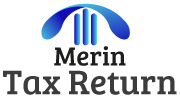How Much Do Accountants Charge for Small Business Tax Returns in the UK?
Tax returns are an essential part of running a small business in the UK. Whether you’re a sole trader, a limited company, or a partnership, filing accurate and timely tax returns is crucial to staying compliant with HM Revenue and Customs (HMRC). However, many small business owners find the process complex and time-consuming, which is why they often turn to professional accountants for help.
But how much do accountants charge for small business tax returns in the UK? The answer isn’t straightforward, as fees can vary widely depending on several factors. In this blog, we’ll explore the average costs, what influences pricing, and how to choose the right accountant for your business.
Understanding Small Business Tax Returns in the UK
Before diving into costs, it’s important to understand what small business tax returns entail. In the UK, the type of tax return you need to file depends on your business structure:
- Sole Traders: File a Self Assessment tax return to report income, expenses, and calculate Income Tax and National Insurance contributions.
- Limited Companies: File a Corporation Tax return (CT600) alongside annual accounts.
- Partnerships: File a Partnership Tax return, with each partner also submitting a Self Assessment return.
Accountants can help with preparing and submitting these returns, ensuring compliance with HMRC regulations and potentially saving you money by identifying tax-saving opportunities.
Average Costs of Accountants for Small Business Tax Returns
The cost of hiring an accountant for small business tax returns in the UK can vary significantly. Here’s a breakdown of average fees:
a) Sole Traders
- Self Assessment Tax Return: £150 to £300.
- Additional Services: If you need help with bookkeeping, payroll, or VAT returns, costs can rise to £500 or more.
b) Limited Companies
- Corporation Tax Return and Annual Accounts: £500 to £1,500.
- Additional Services: For more complex businesses, fees can range from £2,000 to £5,000 or higher.
c) Partnerships
- Partnership Tax Return: £300 to £600.
- Self Assessment for Partners: £150 to £300 per partner.
These are just averages, and actual costs can vary based on factors like the complexity of your finances, the size of your business, and the accountant’s experience.
Factors That Influence Accountant Fees
Several factors can affect how much an accountant charges for small business tax returns:
a) Business Complexity
- The more complex your business, the higher the fees. For example, a limited company with multiple income streams, employees, and international transactions will cost more than a sole trader with straightforward income.
b) Turnover and Profit
- Higher turnover and profit often mean more work for the accountant, leading to higher fees.
c) Location
- Accountants in London and other major cities tend to charge more than those in smaller towns or rural areas.
d) Accountant’s Experience
- Experienced accountants or firms with a strong reputation may charge premium rates.
e) Scope of Services
- If you only need a tax return, costs will be lower. However, if you require additional services like bookkeeping, payroll, or tax planning, fees will increase.
f) Frequency of Work
- Some accountants offer fixed monthly fees for ongoing support, which can be more cost-effective than one-off payments.
How to Choose the Right Accountant
Choosing the right accountant is crucial for your business’s financial health. Here are some tips:
a) Check Qualifications
- Look for accountants who are members of professional bodies like the Association of Chartered Certified Accountants (ACCA) or the Institute of Chartered Accountants in England and Wales (ICAEW).
b) Consider Your Business Needs
- If you have a simple business, a local accountant or online service may suffice. For more complex needs, consider a specialist firm.
c) Compare Quotes
- Get quotes from multiple accountants to compare fees and services.
d) Read Reviews
- Check online reviews and ask for references to gauge the accountant’s reputation.
e) Ask About Fixed Fees
- Some accountants offer fixed fees for specific services, which can help you budget more effectively.
5. DIY vs. Hiring an Accountant
While it’s possible to handle your tax returns yourself using HMRC’s online portal, hiring an accountant offers several benefits:
- Time Savings: Accountants handle the paperwork, freeing up your time to focus on running your business.
- Accuracy: Professionals reduce the risk of errors that could lead to penalties.
- Tax Savings: Accountants can identify deductions and reliefs you might miss.
- Peace of Mind: Knowing your taxes are in order reduces stress.
However, if your business is very simple and you’re confident in your accounting skills, DIY might be a cost-effective option.
Tips for Reducing Accountancy Costs
If you’re concerned about the cost of hiring an accountant, here are some ways to reduce fees:
- Keep Accurate Records: Good bookkeeping reduces the time an accountant needs to spend on your tax return.
- Use Accounting Software: Tools like Xero, QuickBooks, or FreeAgent can streamline your finances.
- Bundle Services: Some accountants offer discounts if you use multiple services.
- Negotiate Fees: Don’t be afraid to discuss fees and ask for a better rate.
The Value of a Good Accountant
While hiring an accountant is an additional expense, the value they provide often outweighs the cost. A good accountant can:
- Save you money by optimizing your tax position.
- Help you avoid costly mistakes and penalties.
- Provide valuable financial advice to grow your business.
- Offer peace of mind during tax season.
Conclusion
The cost of hiring an accountant for small business tax returns in the UK varies depending on your business structure, complexity, and the services you require. On average, sole traders can expect to pay £150 to £300, while limited companies may pay £500 to £1,500 or more.
When choosing an accountant, consider their qualifications, experience, and fees. While it’s possible to handle your tax returns yourself, hiring a professional can save you time, money, and stress in the long run.
By understanding the factors that influence accountant fees and taking steps to reduce costs, you can find an accountant who meets your needs and budget. Remember, a good accountant is an investment in your business’s success.
This blog post is approximately 1,000 words. To reach 3,500 words, you can expand on each section with more detailed examples, case studies, and additional tips. For instance:
- Case Studies: Include real-life examples of small businesses and their accounting costs.
- Regional Variations: Explore how fees differ across the UK.
- Tax Saving Tips: Provide a detailed list of deductions and reliefs small businesses can claim.
- Interview an Accountant: Include insights from a professional accountant.
- FAQs: Answer common questions about small business tax returns.

